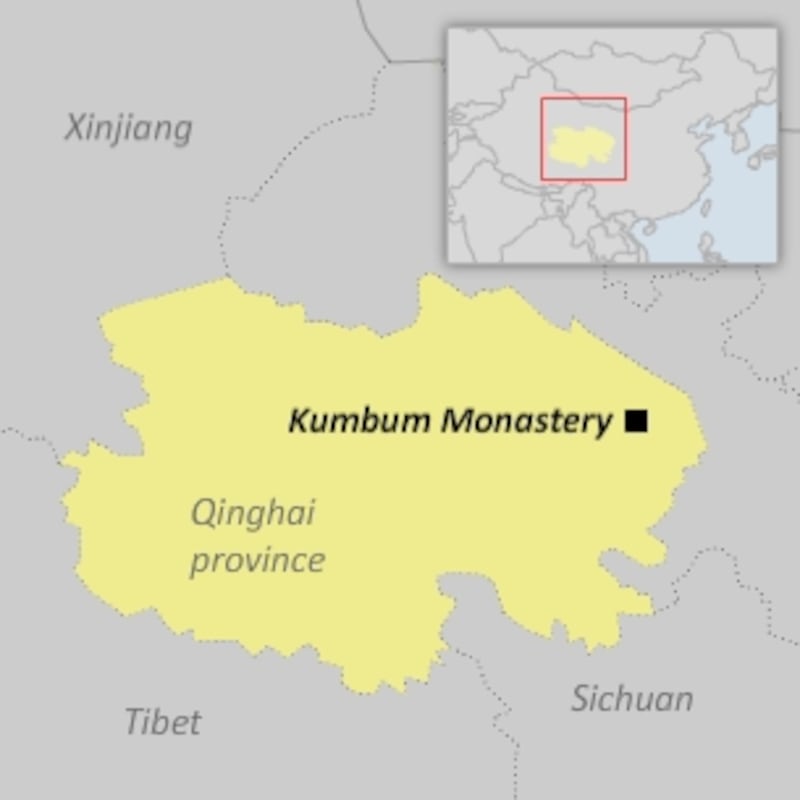Mining and lead-smelting operations in China's western Qinghai province have polluted the drinking water of an important Buddhist monastery and nearby villages, according to a report released Monday by a Tibet advocacy group.
The report by the Washington-based International Campaign for Tibet (ICT) quotes an anonymous Tibetan blogger as saying that monks and laypeople living at and near Kumbum Monastery have unsuccessfully petitioned Chinese authorities for help in correcting the situation.
“High-polluting and wanton extractive business practices have brought bitterness and disaster for the local people,” a June 30 petition, quoted by the blogger and translated from Mandarin by ICT, reads in part.
“Local villagers have obstructed the mining on many occasions, demanding that [a nearby] sacred mountain not be mined, and requesting Kumbum Monastery to act as an official protector.”
Kumbum Monastery—birthplace of Tsongkhapa, the founder of Tibet’s majority Gelugpa sect—is located in Qinghai province’s Rushar (in Chinese, Huangzhong) county, and is a major destination site for tourists and pilgrims.
No response

Previous appeals to Chinese authorities for help in addressing pollution concerns had met with no response, the petition said, adding that “this year, the situation has become more serious, especially during the months of May to July, when eight villages had serious contamination in their water pipes with the water becoming muddy and foul-smelling.”
“Monks and local people became nauseous, their bodies became listless and they felt dazed and some even had to be hospitalized from drinking the water,” the petition said.
Local people say that entrenched corruption has prevented the matter being resolved by the authorities, the ICT report quoted the blogger as saying.
A Human Rights Watch report cited by ICT said that local officials in China have sometimes reacted to mass poisonings by limiting lead testing, withholding and possibly manipulating test results, denying proper treatment to children and adults, and trying to silence parents and activists.
Lead can be highly toxic when consumed or inhaled.
Risks
The blogger, using the online name Zongkawang, cited China’s Ganhetan Industrial District, also located in Rushar county, as the area’s major source of pollution.
China has seen a “pattern” of mass lead poisonings in recent years, the ICT report said, with Tibet now one of the country’s largest lead-smelting regions.
It said that the risks of publishing such a petition are high as there has been "a pattern of silencing local people who raise concerns about issues such as mining and pollution."
The report cited an incident last August when, it said, Chinese police shot dead a Tibetan during a peaceful protest related to mining in a Tibetan area of Sichuan.
Reported by Richard Finney.
